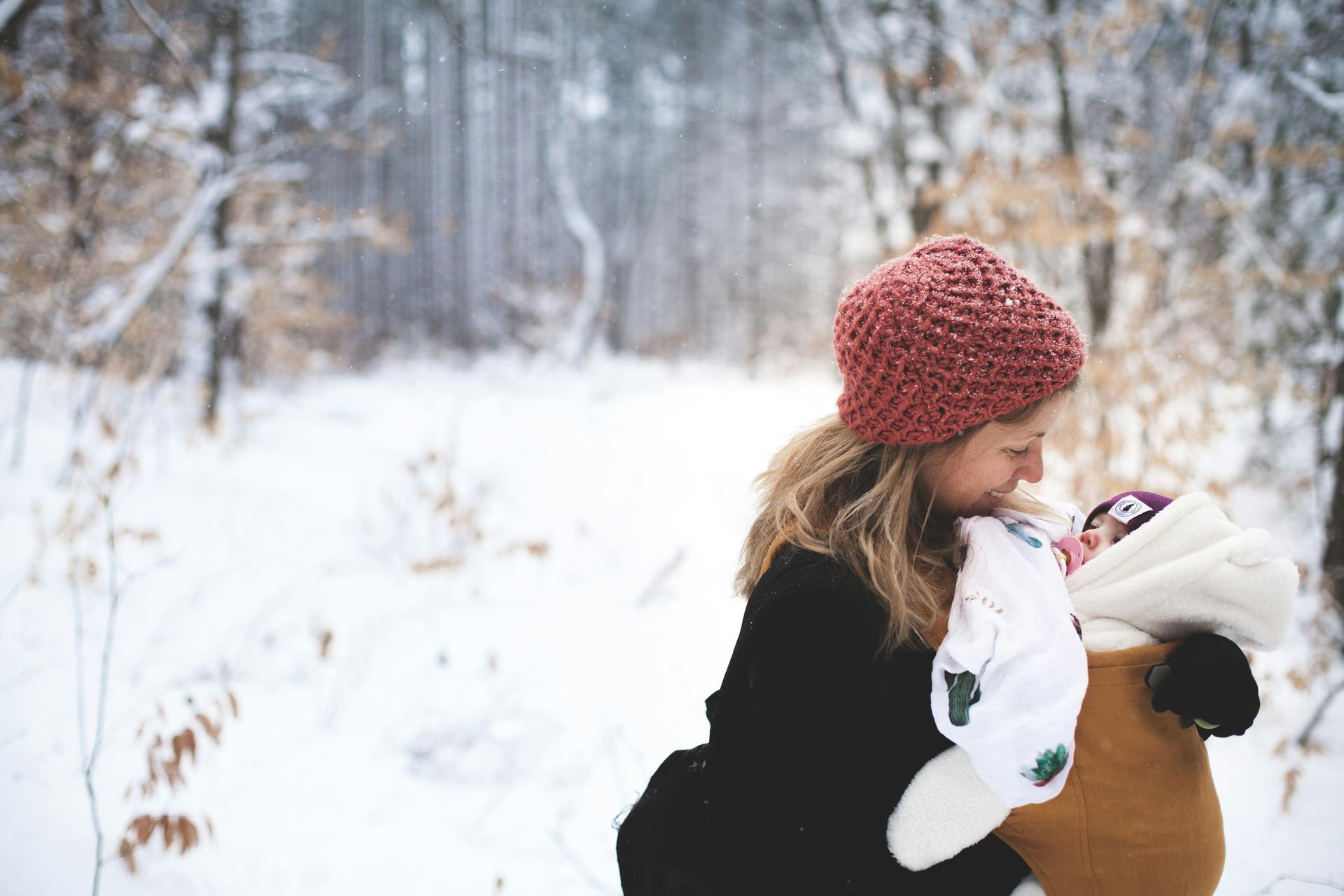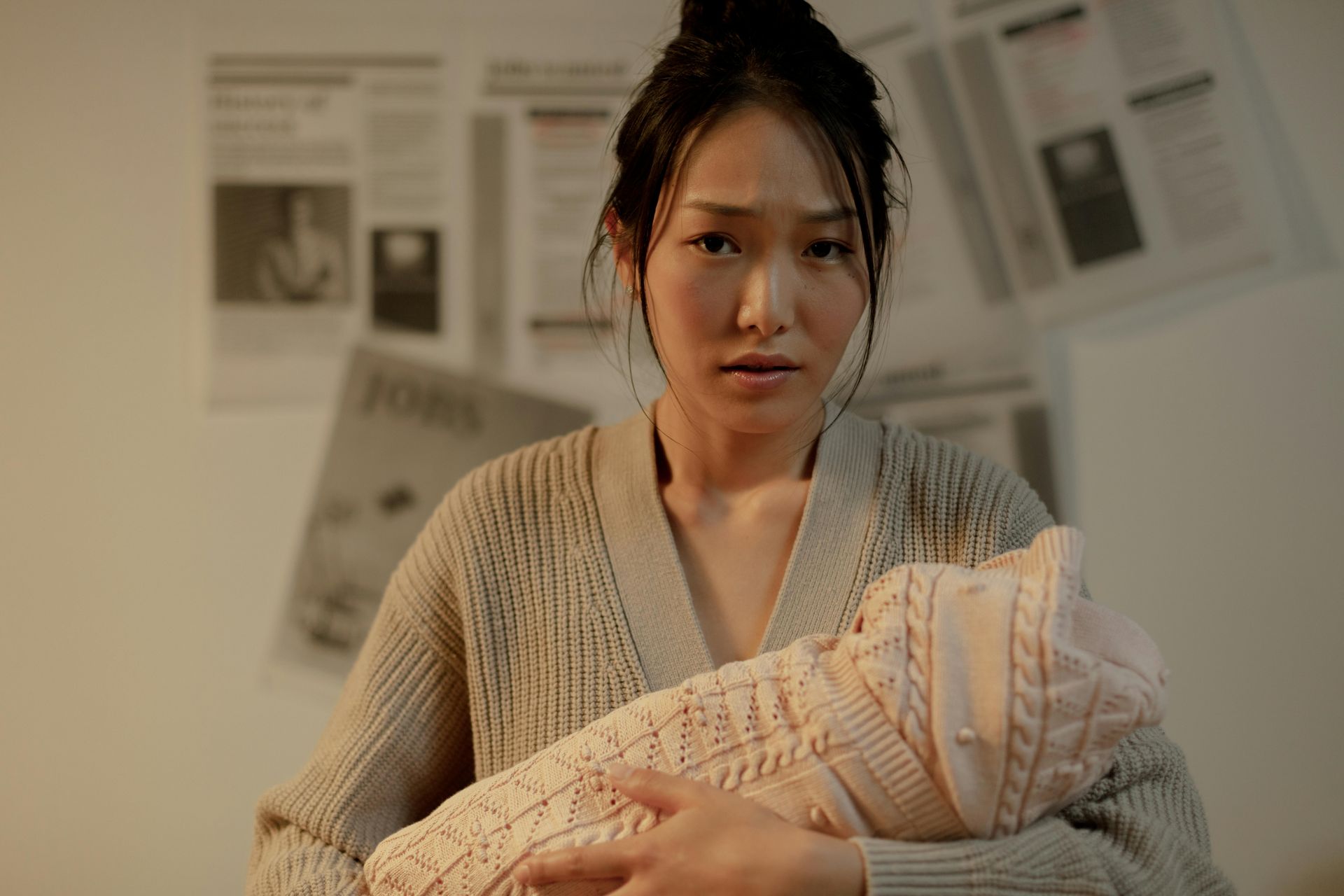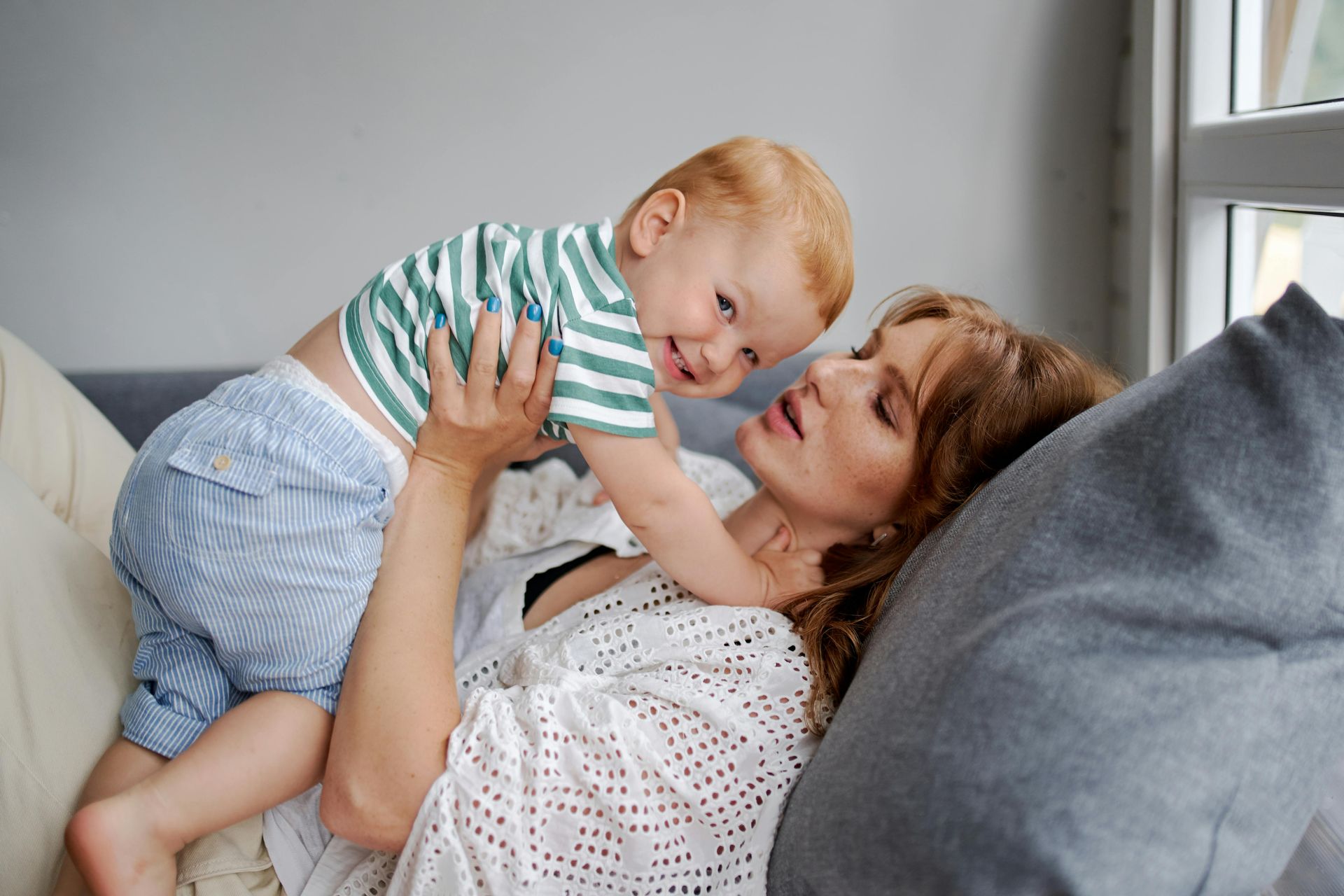Your neighbourhood doula in Toronto and Midtown!
Blog Layout
5 Tips to Prepare Your Baby for Winter
Kana | Your Neighbourhood Doula
Brrr...winter is officially here! Here are 5 things to keep in mind for a cozy, comfortable and germ-free winter.

It’s only natural to want to keep your little one as cozy and safe as possible through their first chilly season. If you’re wondering how to prep your baby for their first cold weather, you’re in the right place.
These tips aren’t just about keeping your baby warm and comfy—they’re also here to help you feel confident and prepared. After all, being a new parent brings enough surprises, so let’s make winter a little easier with a few simple, practical tips.
1. Layer Up for Outdoor Adventures
- Why It Helps: Babies aren’t great at managing their body temperature just yet, so layering is key to keeping them comfortably warm. When you layer, you can add or remove a piece if they get too hot or cold.
- Best approach: Think of it as starting with a “base” (something soft and thin like cotton), adding a cozy middle layer (like fleece), and topping it with a weather-resistant outer layer. A hat and mittens are also important—babies lose heat quickly through their little heads and hands!
- General Tip: A rule of thumb is to dress babies in one more layer than an adult would need in the same conditions. Layering lets you adjust easily for temperatures (vs. only wearing one thick layer) and makes outings feel more manageable, so you’re not worried about whether they’re too hot or too cold.
2. Moisturize, Moisturize, Moisturize!
- Why it helps: Cold air, indoor heating, and frequent washing can strip babies’ skin of moisture, making it more prone to dryness. Moisturizing keeps their skin soft and can prevent itchiness, redness, and irritation.
- Best approach: Use a gentle, fragrance-free, hypoallergenic baby moisturizer. Apply it right after baths (ideally within 5 minutes of being towel dried), and as needed throughout the day, especially on exposed areas like the face, hands, and lips. Using a humidifier in your baby’s room can also help prevent skin dryness by adding moisture to the air! Consider adding a pocket size moisturizer in the stroller for easy access and application on the go.
- Extra tip: For babies with eczema, consider heavier emollients or ointments and check with a pediatrician for specific recommendations.
3. Keep the Bedroom Cozy, Not Too Warm
- Why it helps: Babies sleep best in a room that’s warm but not too warm—usually around 20-22°C (68-72°F). However, I understand that maintaining this temperature may not always be possible with different climates and home thermostat! So if regulating the room temperature is difficult in your household, use layering as a way to keep them cool or warm.
- Best approach: Keep the room at a steady temperature, and use a sleep sack or wearable blanket. If the baby is too cold, don't use hats or loose blankets to warm them up because those items do not meet safe sleep guidelines.
- Extra tip:
- How do you know if your baby is overheating? It's when your baby’s neck or hair are sweaty, your baby’s cheeks are flushed and/or their tummy and neck feel clammy. In this case, remove a layer.
- How do you know if your baby is cold? The core of their body (think tummy, chest, back and neck) would feel cool to the touch. Baby's hands and feet are not the best indicators of their temperature so make sure to check the core of their body.
4. Stay on Top of Hydration (for You and Baby!)
- Why it helps: Dry air from indoor heating can lead to dehydration, especially since babies may not show the usual thirst signals and tend to lose moisture more quickly.
- Best approach: For breastfeeding or formula-fed babies, feedings will cover their hydration needs. A cool-mist humidifier can also add moisture to the air though this cannot replace hydration from feeding. For older babies on solids, offer a bit more water or provide them with foods with more moisture such as oatmeal.
- General note: When your baby’s hydrated, they’re often more comfortable and less prone to dry skin or congestion. Plus, as a new parent, staying hydrated yourself will keep your energy up and help you avoid winter dryness too!
5. Guard Against Winter Illnesses
- Why it helps: Babies have developing immune systems, making them more vulnerable to colds, RSV, and flu, which peak during the winter months.
- Best approach: Make hand hygiene a regular thing for the whole family, especially for older siblings who go to daycares and school, and try to avoid crowded spaces during peak flu season. If you are going to the hospital for your own appointments, avoid bringing your baby with your if possible (I know it's not always possible to get a babysitter with availability and cost)! As a doula, I also accompany appointments so that while you're getting the care you need, I can care for your baby outside the hospital (nearby at a park or in a different building close by).
- Bonus tip: Consider babywearing: Babywearing can be a great way to keep them close to you, warm, and somewhat shielded from others when out and about.
Winter with a baby might seem a bit daunting, but with a little prep, you’ll be ready to face it like a pro!

By Your Neighbourhood Doula Account
•
February 17, 2025
Many new parents experience intrusive thoughts—those sudden, distressing worries about their baby’s safety. If you’ve ever had an unsettling thought and felt ashamed, you’re not alone. In this post, we break down what intrusive thoughts are, why they happen, and how to manage them with practical strategies and support. Learn how to navigate the mental load of new parenthood and find reassurance that these thoughts do not define you. Read more to understand, cope, and seek the help you deserve.


